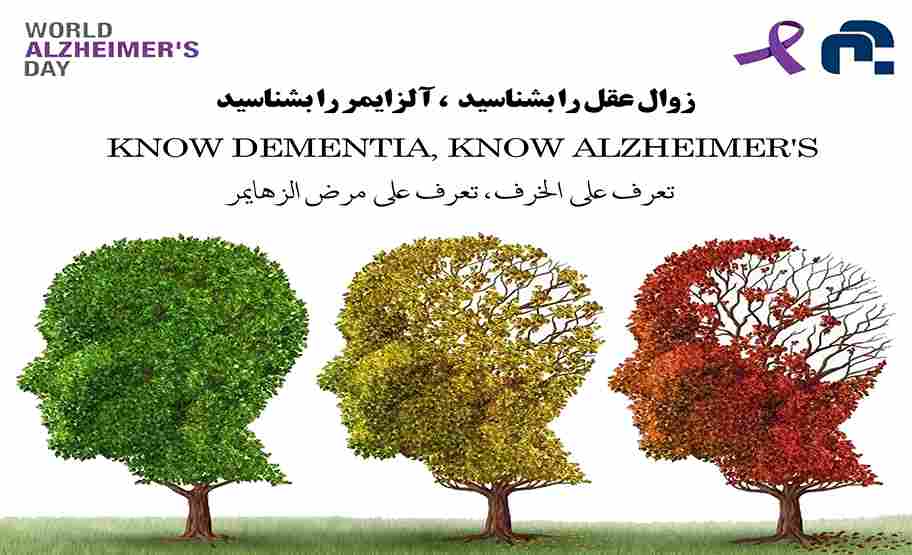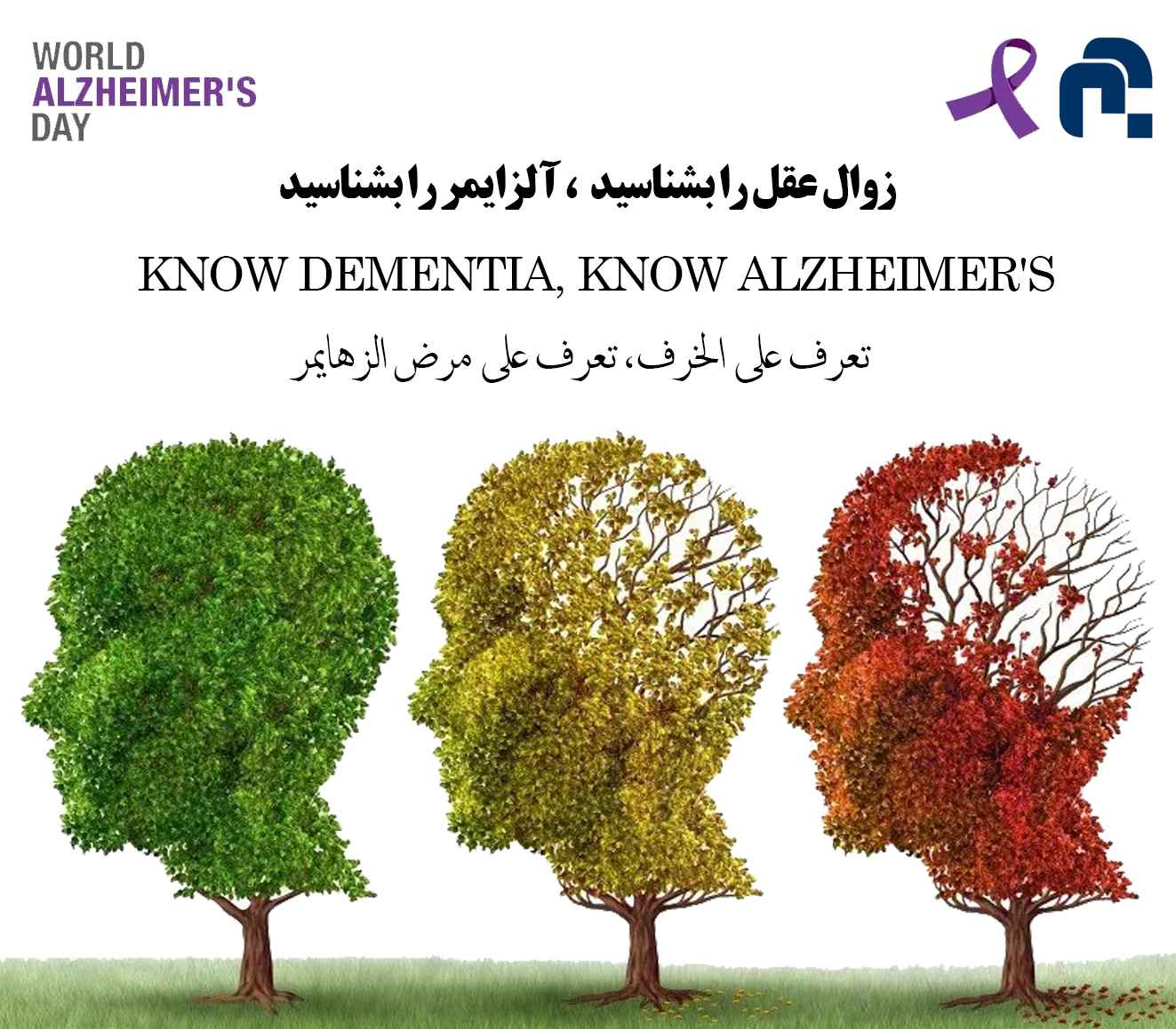
1403/06/29 14:57:57
World Alzheimer's Day
World Alzheimer’s Day
Reason for Naming World Alzheimer’s Day
Alzheimer's disease is named after Dr. Alois Alzheimer. In 1906, Dr. Alzheimer noticed changes in the brain tissue of a woman who had died from an unusual mental illness. Her symptoms included memory loss, language problems, and unpredictable behavior.
Importance of World Alzheimer’s Day
Alzheimer's is a severe brain disorder that leads to memory loss and confusion, and if not diagnosed and managed in time, it can negatively affect an individual's mental capabilities in learning, thinking, reasoning, recalling, problem-solving, decision-making, and attention, impacting daily activities and emotional regulation. This serious illness affects not only the patients but also their families and friends.
World Alzheimer's Month is observed every September, with World Alzheimer’s Day on the 21st of September each year. It serves as a global opportunity to raise awareness about supporting those affected by this disease.
Many people still mistakenly believe that Alzheimer’s is a part of natural aging. This misconception highlights the importance of public awareness campaigns, such as World Alzheimer's Month, to change perceptions and increase public knowledge about Alzheimer’s disease.
The campaign for World Alzheimer’s Month 2024 will focus on the slogans “Time to act for dementia treatment, time to act for Alzheimer’s treatment.”
In the days leading up to and on this day, many Alzheimer’s and dementia organizations worldwide hold events such as memory walks, fundraising activities, and awareness campaigns to draw attention to those affected by Alzheimer’s or other types of dementia.
On each World Alzheimer’s Day, ADI releases the annual global Alzheimer’s report. This year’s campaign theme, like the 2023 report, will focus on the challenges faced after diagnosis.
The theme of World Alzheimer's Day 2024
The theme of World Alzheimer's Day 2024 is "Time to act to treat dementia, time to act to treat Alzheimer's", which not only emphasizes the importance of identifying risk factors for Alzheimer's disease, but also the adoption of preventive measures to reduce the risk in order to prevent or It also refers to a minimal delay in the onset of dementia.
Recognizing and managing the risks associated with Alzheimer's disease can have significant effects. Various lifestyle changes can help slow or prevent its progression. There are common risk factors between vascular diseases and dementia syndromes. The World Health Organization (WHO) has published recommendations to reduce the risk of dementia, which can also prevent cardiovascular disease.Improving lifestyle choices plus controlling modifiable risk factors can not only minimize the risk of future dementia, but also other chronic conditions. Protecting brain health can be achieved by:
- No alcohol consumption
- A passion for lifelong learning
- Social interaction and stimulation in older age

Past situations in recent years of World Alzheimer's Day
From year to year, past World Alzheimer's Day themes are as follows:
Theme for World Alzheimer's Day 2023 - Not too early, not too late
The theme of World Alzheimer's Day 2022 - Know Dementia, Know Alzheimer's
The theme of World Alzheimer's Day 2021 - Know Dementia, Know Alzheimer's
World Alzheimer's Day 2020 Theme - Let's Talk About Dementia
World Alzheimer's Day 2019 theme - Let's talk about dementia
The theme of World Alzheimer's Day 2018 - Every 3 seconds, someone in the world develops dementia
Facts about World Alzheimer's Day
Alzheimer's is one of the most common types of dementia, accounting for 60-80% of all dementia cases in the world.
It is estimated that the prevalence of Alzheimer's worldwide is about 2.4 million people.
According to ADI, by 2050, 13.5 million people worldwide will be living with dementia.
Finland is the country with the highest number of Alzheimer's patients and there are 55 Alzheimer's cases out of every 100,000 people.
It is clear that most Alzheimer's patients are 65 years old or older, but old age is not necessarily the only risk factor for Alzheimer's.
It has been observed that 5% of Alzheimer's patients develop early Alzheimer's between the ages of 40 and 50.
Alzheimer's has no definitive cure and is progressive in nature, but early diagnosis and treatment can help reduce symptoms.
The first Alzheimer's Month campaign was launched in 2012. In a study, it was observed that an average of 2 out of 3 people globally have little understanding of Alzheimer's disease and dementia related to it in their countries.
Each year, Alzheimer's Disease International (ADI) publishes its Global Alzheimer's Reports, which focuses on different topics related to dementia.
